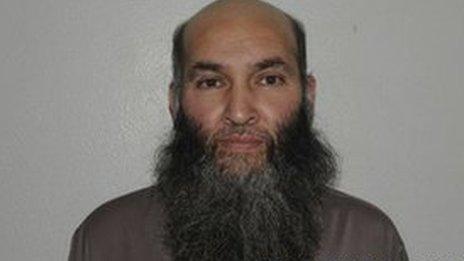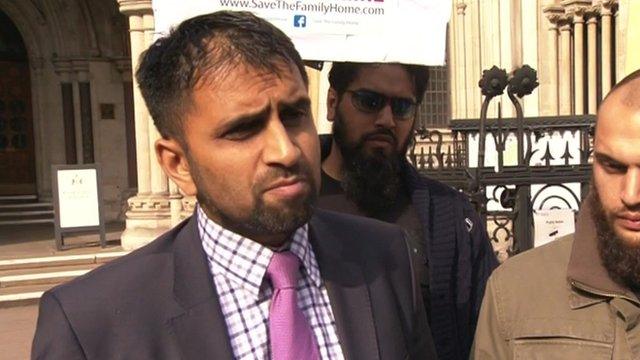Police fail to seize terror inmate Munir Farooqi's home
- Published

A judge said seizing the home would harm Farooqi's innocent family
A judge has ruled that the £200,000 family home of a man convicted of terrorism offences cannot be seized as a criminal asset.
Munir Farooqi was given four life sentences in 2011 after he tried to recruit two undercover police officers for jihad in Afghanistan.
His trial heard he used the family home for meetings to radicalise recruits.
But a judge at Manchester Crown Court said seizing the home would harm Farooqi's family.
The house is estimated to be worth about £200,000 and is registered in the name of Farooqi's wife and daughter.
Greater Manchester Police wanted to seize the property under a clause of the Terrorism Act 2000, external.
'Right to family life'
Seven members of Farooqi's family, from three generations, still live in the house and claimed the application was a breach of their right to family life.
On Friday, Deputy High Court Judge Richard Henriques agreed.
He said he was satisfied Farooqi had control of the house at time of his offences, but that his family did not know of his terrorist activities.
He said seizing the home would adversely affect the family, rendering six innocent adults and two children homeless.
The judge also ruled that Farooqi, of Longsight, Manchester, must pay £500,000 towards the costs of his trial.
It is understood any cash recovered would go to the Treasury, not Greater Manchester Police.
Had the force's application been successful, it would have been the first time a family home had been seized as a terrorist asset.
'Proportionate response'
After the hearing Farooqi's son, Harris Farooqi, said: "Over 50,000 people signed a petition to help save our family home.
"This has not only been an emotional struggle, but a financial one as well. On behalf of my family, we would like to thank all our friends, supporters and legal teams."
Det Supt Julian Richardson said Farooqi's crimes had all taken place at the family home and had "threatened the lives of coalition forces overseas."
He added: "The ruling demonstrates a proportionate response to the evidence placed before the court.
"The £500,000 costs order should draw to a conclusion this protracted and complex investigation into the most serious offences."
- Published30 September 2013

- Published8 November 2011
